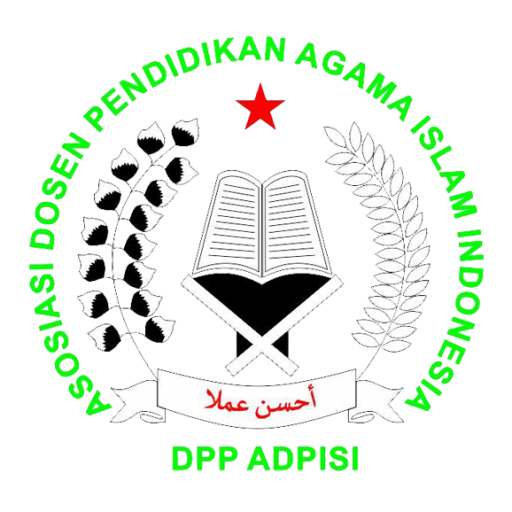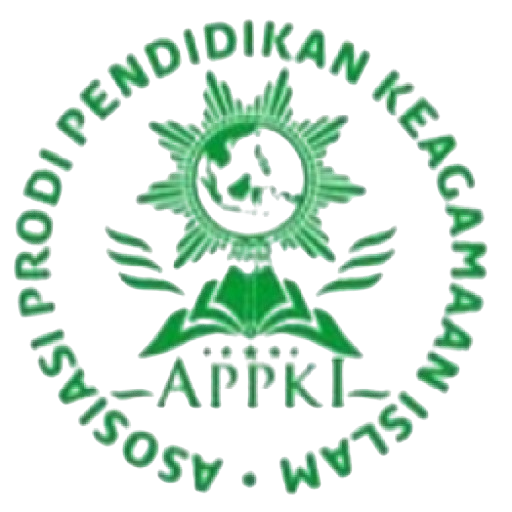STUDI ANALISIS KONSEP TARBIYYAH MUHAMMAD RAWWAS SERTA REVELANSINYA TERHADAP PROBLEMATIKA KENAKALAN REMAJA
Abstract
This study aims to analyze the concept of tarbiyyah of contemporary Muslim intellectual Muhammad Rawwas and its relevance to the dynamics of juvenile delinquency. Indeed, education was created in order to shape the personality of students who are religious and build their cognitive intellectuality so that they become a superior generation in the future. Increasing the penetration of global flows in the last few decades due to the current Covid-19 outbreak has resulted in the world of Indonesian education experiencing great challenges in order to stem the negative sides posed by students, especially regarding morality throughout Indonesia. This research study uses a mixed methods approach that combines quantitative and qualitative approaches. The number of respondents involved in the quantitative approach was 197 people, of which 149 were female, and the remaining 48 were male. This was taken through an interview with one of the principals to validate and strengthen assumptions in the field. The age range of students ranges from 15 to 18 years, all of which we take from the West Java region. The data collected was then analyzed using Miles and Huberman Theory. The results showed several findings including 1) The level of male delinquency is higher with a coefficient of 3.6 compared to female which is only 2.1, 2) The factors that influence juvenile delinquency are divided into two internal and external, 3) Application of the concept of tarbiyyah Muhammad Rawwas which includes nine principles which are extracted from the life journey of Rasulullah SAW can suppress cases of teenage acquaintances.
Keyword: Al-Qur'an; Tarbiyah; Muhammad Rawwas; Juvenile Delinquency, Pandemic
Full Text:
PDF (Bahasa Indonesia)References
‘Abd Al-Raḥmān, Jamāl. 2004. “Aṭfāl Al-Muslimīn Kaifa Rabāhum Al-Nabiyyu Al-Amīn.”
Al-Adawi, Musthafa. 1998. Fiqh Tarniyyah Al-Abna Wa Thaifah Min Nasaih Al-Athibba. Kairo: Dar Majid Al-Usairi.
Al-Jazāirī, Abū Bakar Jābir. 1990. Aysaru At-Tafāsīr Li Kalām Al-Alī Al-Kabīr. Jeddah: Racem.
Al-Misri, Ridha. 2010a. Masyru’ Al-Ibn Al-Bathal. Kairo: Dar Al-Fadhilah.
———. 2010b. Masyru’ Al-Ibn Al-Mahbub. Kairo: Dar Al-Fadhilah.
Al-Suri, Yusuf Khotir Hasan. 1991. “Asalib Al-Rasul Fi Al-Dakwah Wa Al-Tarbiyah.” : 85.
Albrow, Martin, John Eade, Neil Washbourne, and Jorg Durrschmidt. 1994. “The Impact of Globalization on Sociological Concepts: Community, Culture and Milieu.” Innovation: The European Journal of Social Science Research 7(4): 371–89.
Ali, Said Ismail. 2002. Ushul Al-Fiqh At-Tarbawi Al-Islami: As-Sunnah Al-Nabawiyyah Ru’yah Tarbawiyyah. Kairo: Dar Al-Fikr Al-Arabi.
As-Sa’dī, Abdurrahmān bin Nāshīr bin Abdullah. 2000. Taysīr Al-Karīm Ar-Rahmān Fī Tafsīr Kalām Al-Mannān. Beirut: Muassah Ar-Risalah.
Bakār, ‘Abdul Karīm. 2011. “Al-Qawā’id Al-‘Asyr: Ahammu Al-Qawā’Id Fī Tarbiyat Al-Abnā.’”
Bakkar, Abdul Karim. 2011a. Al-Murahiq Kaifa Nafhamuhu Wa Kaifa Nuwajjihuhu. Riyadh: Maktabah Al-Malik Fahd Al-Wathaniyyah.
———. 2011b. Al-Tawasul Al-Usra: Kaifa Nuhmiya Usrana Min At-Tafakkuk. Riyadh: Maktabah Al-Malik Fahd Al-Wathaniyyah.
———. 2011c. Haula At-Tarbiyyah Wa At-Ta’lim. Beirut: Dar Al-Kalam.
———. 2011d. Musykilat Al-Athfal: Tasykhish Wa ’Ilaj Li Ahammi Asyri Musykilat Yu’ani Minha Al-Athfal. Riyadh: Maktabah Al-Malik Fahd Al-Wathaniyyah.
Breetzke, Gregory D. 2018. “The Concentration of Urban Crime in Space by Race: Evidence from South Africa.” Urban Geography 39(8): 1195–1220. https://doi.org/10.1080/02723638.2018.1440127.
Carolan, Clare et al. 2020. “COVID 19: Disruptive Impacts and Transformative Opportunities in Undergraduate Nurse Education.” Nurse Education in Practice 46: 102807. https://doi.org/10.1016/j.nepr.2020.102807.
Chang, Tsai Yu et al. 2021. “Innovation of Dental Education during COVID-19 Pandemic.” Journal of Dental Sciences 16(1): 15–20. https://doi.org/10.1016/j.jds.2020.07.011.
Chivers, Meredith, and Ray Blanchard. 1996. “Prostitution Advertisements Suggest Association of Transvestism and Masochism.” Journal of Sex and Marital Therapy 22(2): 97–102.
Goodwin, A. Lin. 2020. “Globalization, Global Mindsets and Teacher Education.” Action in Teacher Education 42(1): 6–18. https://doi.org/10.1080/01626620.2019.1700848.
Hadar, Linor L., Oren Ergas, Bracha Alpert, and Tamar Ariav. 2020. “Rethinking Teacher Education in a VUCA World: Student Teachers’ Social-Emotional Competencies during the Covid-19 Crisis.” European Journal of Teacher Education 43(4): 573–86. https://doi.org/10.1080/02619768.2020.1807513.
Harper, Craig A., and Andrew J. Harris. 2017. “Applying Moral Foundations Theory to Understanding Public Views of Sexual Offending.” Journal of Sexual Aggression 23(2): 111–23. http://dx.doi.org/10.1080/13552600.2016.1217086.
Jönson, Häkan. 2003. “Constructing Crime against the Elderly in Swedish Crime Prevention Campaigns.” Journal of Scandinavian Studies in Criminology and Crime Prevention 4(2): 180–203.
Joyce-Wojtas, Niamh, and Marie Keenan. 2016. “Is Restorative Justice for Sexual Crime Compatible with Various Criminal Justice Systems?” Contemporary Justice Review: Issues in Criminal, Social, and Restorative Justice 19(1): 43–68.
Krishnamurthy, Sandeep. 2020. “The Future of Business Education: A Commentary in the Shadow of the Covid-19 Pandemic.” Journal of Business Research 117: 1–5. https://doi.org/10.1016/j.jbusres.2020.05.034.
Lambert, Eric G., O. Oko Elechi, and Shanhe Jiang. 2010. “Formal and Informal Crime Control Views in Nigeria and the United States: An Exploratory Study among College Students.” Journal of Ethnicity in Criminal Justice 8(2): 104–26.
Langlois, Sylvia et al. 2020. “The COVID-19 Crisis Silver Lining: Interprofessional Education to Guide Future Innovation.” Journal of Interprofessional Care 34(5): 587–92. https://doi.org/10.1080/13561820.2020.1800606.
Machingambi, Severino. 2014. “The Impact of Globalisation on Higher Education: A Marxist Critique.” Journal of Sociology and Social Anthropology 5(2): 207–15.
Nishiura, Hiroshi, Natalie M. Linton, and Andrei R. Akhmetzhanov. 2020. “Serial Interval of Novel Coronavirus (COVID-19) Infections.” International Journal of Infectious Diseases 93: 284–86. https://doi.org/10.1016/j.ijid.2020.02.060.
Van Nuland, Shirley, David Mandzuk, Krista Tucker Petrick, and Terri Cooper. 2020. “COVID-19 and Its Effects on Teacher Education in Ontario: A Complex Adaptive Systems Perspective.” Journal of Education for Teaching 46(4): 442–51. https://doi.org/10.1080/02607476.2020.1803050.
Prince, C. V. 2005. “Homosexuality, Transvestism and Transsexuality: Reflections on Their Etiology and Differentiation.” International Journal of Transgenderism 8(4): 17–20.
Rahmawati, Nikmah. 2017. “Kenakalan Remaja Dan Kedisiplinan: Perspektif Psikologi Dan Islam.” Sawwa: Jurnal Studi Gender 11(2): 267.
Rawwas, Muhamad. 1988. “Dirasah Tahliliyyah Li Syahshiyati Ar-Rasul Muhammad.” : 1–303.
Riordan, Sharon. 1999. “Indecent Exposure: The Impact upon the Victim’s Fear of Sexual Crime.” Journal of Forensic Psychiatry 10(2): 309–16.
Sparrow, Robert, Teguh Dartanto, and Renate Hartwig. 2020. “Indonesia Under the New Normal: Challenges and the Way Ahead.” Bulletin of Indonesian Economic Studies 56(3): 269–99.
Sriyanto, Aim Abdulkarim, Asmawi Zainul, and Enok Maryani. 2014. “Perilaku Asertif Dan Kecenderungan Kenakalan Remaja Berdasarkan Pola Asuh Dan Peran Media Massa.” Jurnal Psikologi 41(1): 74.
Susilawati, Susilawati, Reinpal Falefi, and Agus Purwoko. 2020. “Impact of COVID-19’s Pandemic on the Economy of Indonesia.” Budapest International Research and Critics Institute (BIRCI-Journal): Humanities and Social Sciences 3(2): 1147–56.
Ulwan, Abdullah Nashih. 1983. “Tarbiyyah Al-Aulad Fil Islam.” : Jilid 1.
Unayah, Nunung, and Muslim Sabarisman. 2015. “Fenomena Kenakalan Remaja Dan Kriminalitas.” Sosio Informa 1(2): 121–40.
Utsumi, Takeshi. 2006. “Global University System for Engineering Education in the Age of Globalization.” European Journal of Engineering Education 31(3): 339–48.
DOI: https://doi.org/10.17509/tk.v19i2.41119
Refbacks
- There are currently no refbacks.
Copyright (c) 2021 Mohammad Rindu Fajar Islamy, Usup Romli, Ganjar Eka Subakti, Saepul Anwar

This work is licensed under a Creative Commons Attribution-ShareAlike 4.0 International License.
EDITORIAL OFFICE:
Islamic Education Program
Faculty of Social Science Education
UPI The Education University
Jl. Dr. Setiabudhi No. 229 Bandung 40154 Jawa Barat - Indonesia
Telp. 022-2013163
E-mail: taklim@upi.edu
The Jurnal TAKLIM: Jurnal Pendidikan Agama Islam, published by Program Studi Ilmu Pendidikan Agama Islam (IPAI), Fakultas Pendidikan Ilmu Pengetahuan Sosial (FPIPS), Universitas Pendidikan Indonesia (UPI), is licensed under a Creative Commons Attribution-ShareAlike 4.0 International License
Stat Counter:




















